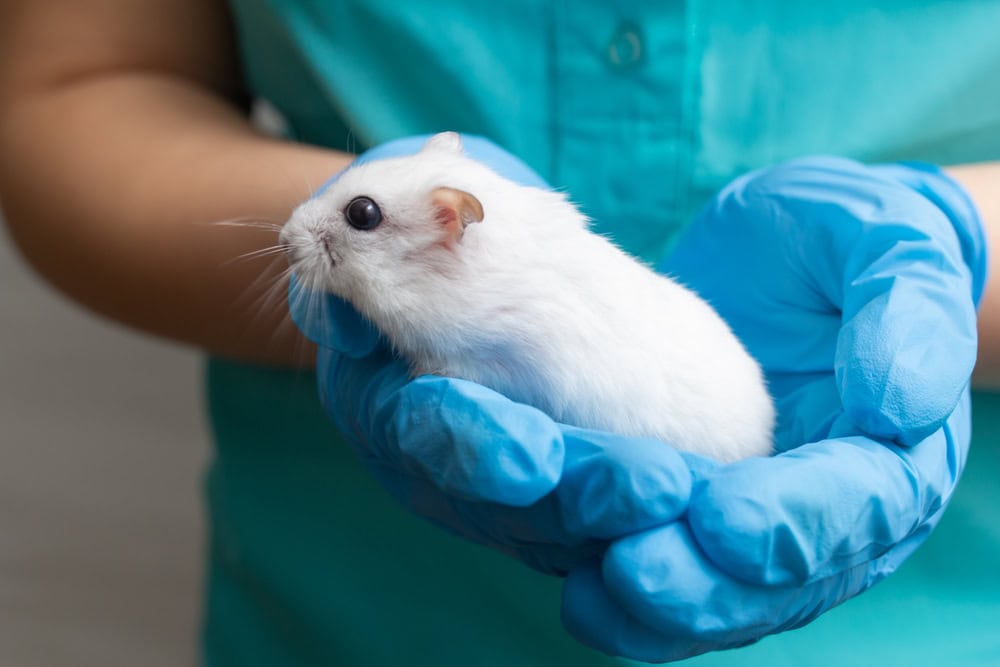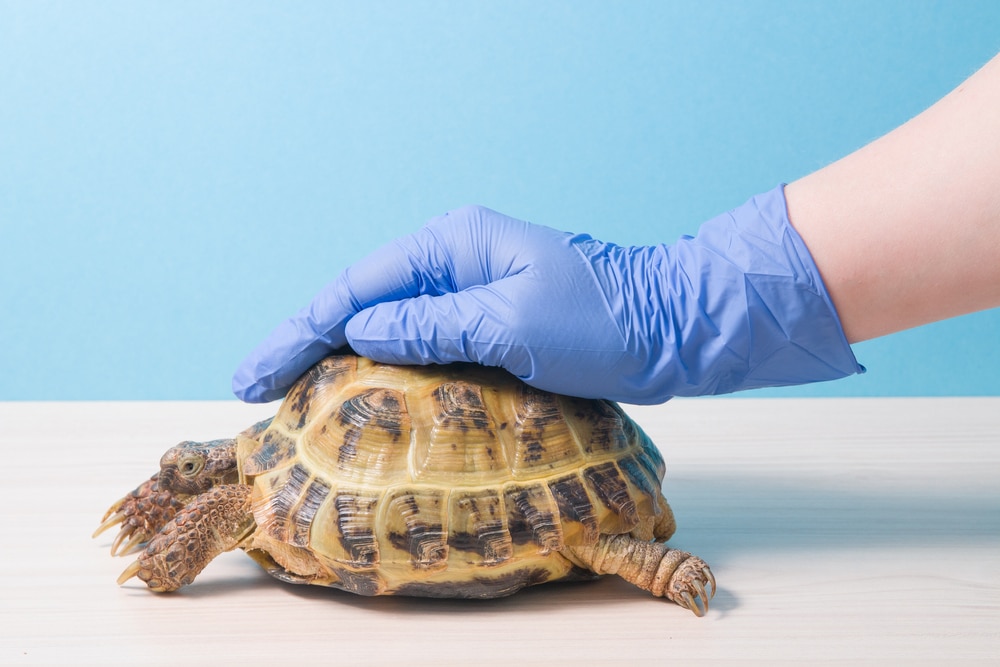Cat Poisoning: Causes, Symptoms, & Treatment (Vet Answer)

Updated on
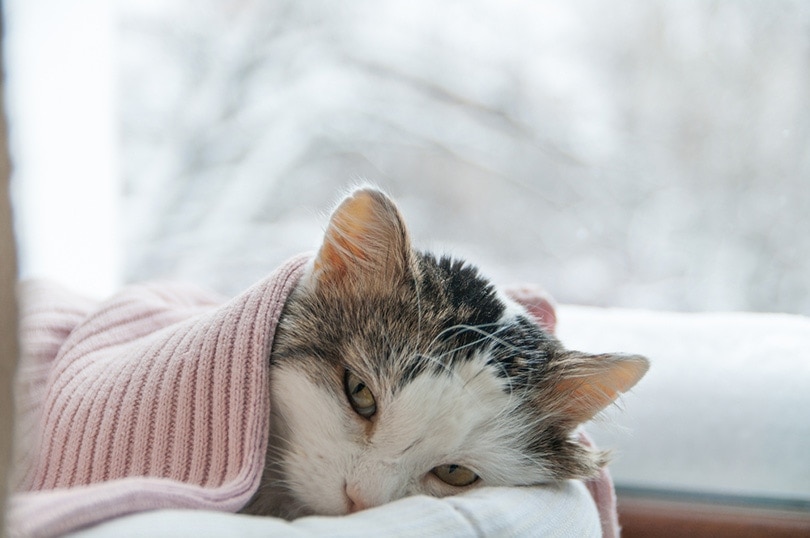
Click to Skip Ahead
Although cats are pickier eaters than dogs, their curious nature and fastidious grooming habits put them at risk for poisoning. There are many items commonly found around the home and in the garden that may pose a risk to cats. Let’s take a look at the most prominent dangers found in and outside of the home when it comes to cat poisoning.
The 12 Most Common Causes of Cat Poisoning
According to Pet Poison Helpline, the 12 most common cat poisons that the helpline gets calls about include:
1. Lilies
Lilies may be beautiful to look at, but these plants are highly toxic to cats. Lilies (Lilium, also known as ‘true lilies’) and daylilies (Hemerocallis) can cause acute kidney failure in cats. If a cat ingests even a small amount of the plant (including the flowers, pollen, stem, and leaves) or drinks water from a vase with cut lilies in it, it may be fatal.

2. Spot-On Tick & Flea Medication For Dogs
Some spot-on tick and flea medication for dogs contain an insecticide known as permethrin. Unlike dogs, cats lack the enzymes necessary to break down permethrin into a harmless form. If a cat is exposed to permethrin, the chemical will accumulate in its body, causing neurological signs. The most common way that a cat is poisoned with permethrin, is when an owner accidentally applies dog spot-on tick and flea medication to their cat. A cat may also become poisoned if it grooms a dog that has recently been treated with a spot-on product containing permethrin.
3. Household Cleaners
Household cleaning products, such as drain cleaner, laundry detergent, toilet bowl cleaner, and bleach, can cause a cat to develop chemical burns, vomiting, and breathing difficulties if accidentally inhaled or ingested.
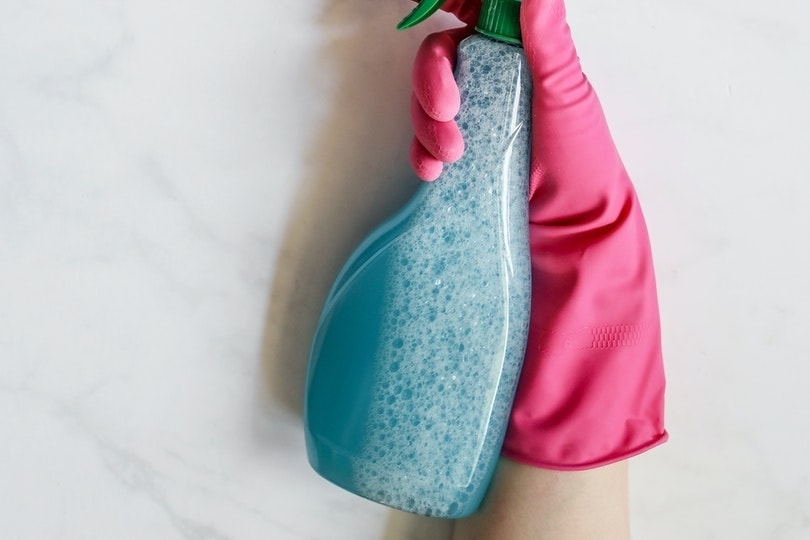
4. Antidepressant Medications
For reasons unknown, cats are drawn to the human antidepressant medication Effexor and will often eat this medication if it is left lying around. Other common antidepressants that may cause poisoning in cats include Prozac and Zoloft. If ingested, these medications may affect a cat’s cardiovascular, gastrointestinal, and neurological systems.
5. Essential Oils
Essential oils are compounds extracted from plants and are commonly used in aromatherapy. They are also used in insecticides, fragrance diffusers, personal care products, and herbal remedies. Essential oils are rapidly absorbed orally or through the skin and are then metabolized by the liver. Cats are sensitive to some essential oils as they lack the necessary enzymes to metabolize these chemicals.
According to Pet Poison Hotline, essential oils known to be toxic to cats include sweet birch, wintergreen, citrus, ylang ylang, peppermint, tea tree, and cinnamon.
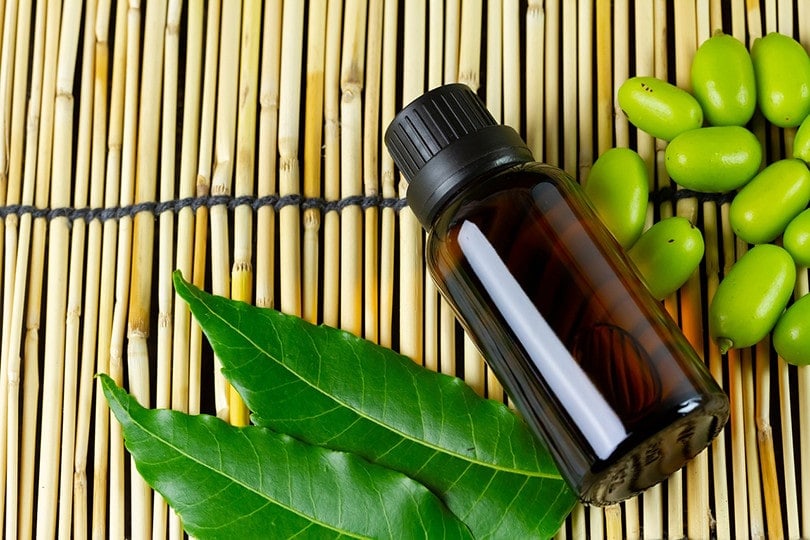
6. Non-Steroidal, Anti-Inflammatory Drugs
Cats are sensitive to the effects of non-steroidal anti-inflammatories (NSAIDs) such as ibuprofen, as they are less efficient at metabolizing these drugs. A cat may get poisoned when it accidentally swallows pills left lying out, or when an owner administers an NSAID to treat a cat’s pain without consulting a veterinarian.
7. Rodenticides
Rodenticides are poisons commonly used in and around homes, gardens, and farms, to kill rats and mice by preventing blood clotting. Poisoning may occur when a cat accidentally eats the bait left for rodents, or when a cat catches and eats poisoned rats or mice (although a large number of poisoned rodents will need to be eaten for this to happen). According to VCA Hospitals, there are several different active ingredients that may be used in rodenticides including chlorophacinone, brodifacoum, bromadiolone, difenacoum, difethialone, diphacinone, and warfarin.
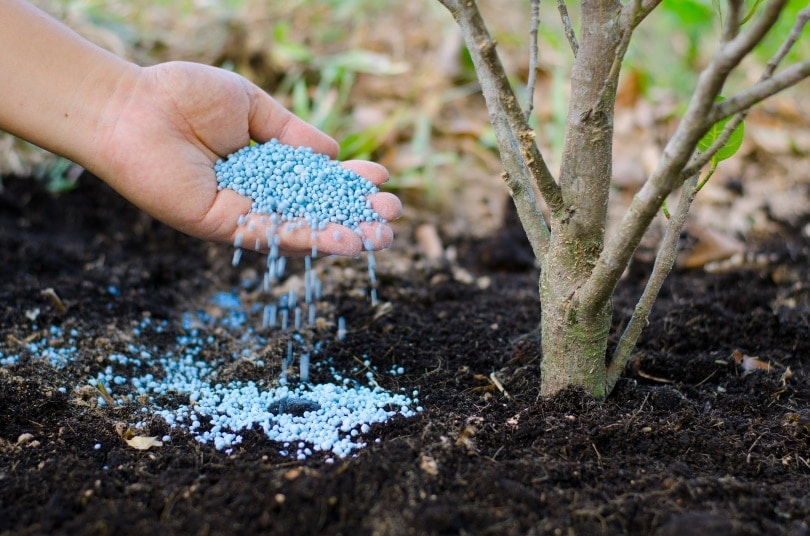
8. Stimulant Medications (e.g., for ADD/ADHD)
Amphetamines are central nervous system and cardiovascular system stimulants commonly used in people to treat attention deficit hyperactivity disorder in people.
The ASPCA Animal Poison Control Centre (APCC) reports that they receive an increase in calls during the school year of pets having accidentally ingested these medications meant to treat school children. In particular, cats find Adderall XR, an amphetamine used to treat attention deficit hyperactivity disorder, enticing and will eat whole tablets left lying around.
9. Onions and Garlic
Cats are highly susceptible to onion and garlic poisoning, and ingestion of even a small amount of these plants may be fatal. Raw, cooked, and powdered onions and garlic, may cause hemolytic anemia in cats. Hemolytic anemia is a condition in which red blood cells are destroyed faster than they can be produced. Onion and garlic poisoning usually occurs after a cat eats raw onion or feeding foods containing onions and garlic.
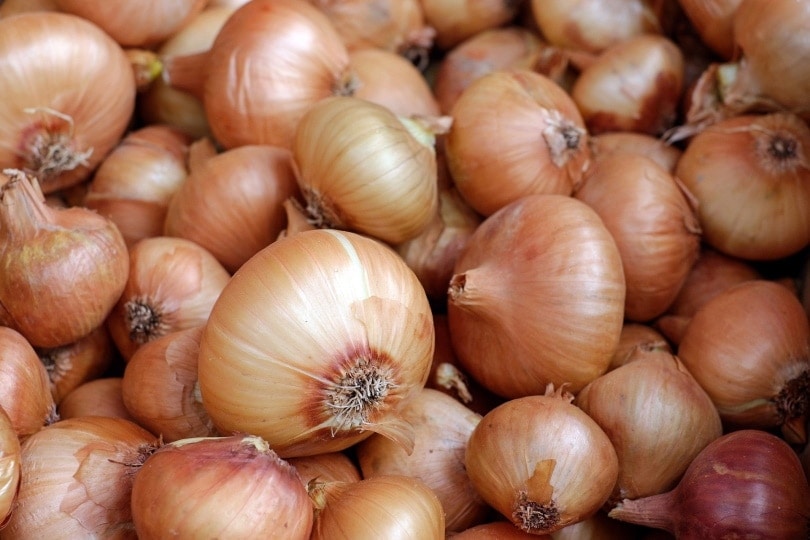
10. Vitamin D Overdose
Vitamin D helps regulate the calcium and phosphorus balance in a cat’s body. Calcium aids in bone formation, as well nervous system function, immune system function, and muscle movement. Vitamin D poisoning occurs when a cat consumes excessive amounts of vitamin D in improperly formulated diets (both commercial and home made), and from ingesting medication with high levels of vitamin D such as supplements and psoriasis topical lotions. The accidental ingestion of rodenticides (as discussed above), can also result in Vitamin D toxicity.
High doses of Vitamin D can cause elevated levels of calcium and phosphorus in the body, which may result in kidney failure.
Other noteworthy items found around the home that have been implicated in cat poisonings include:
11. Ethylene Glycol
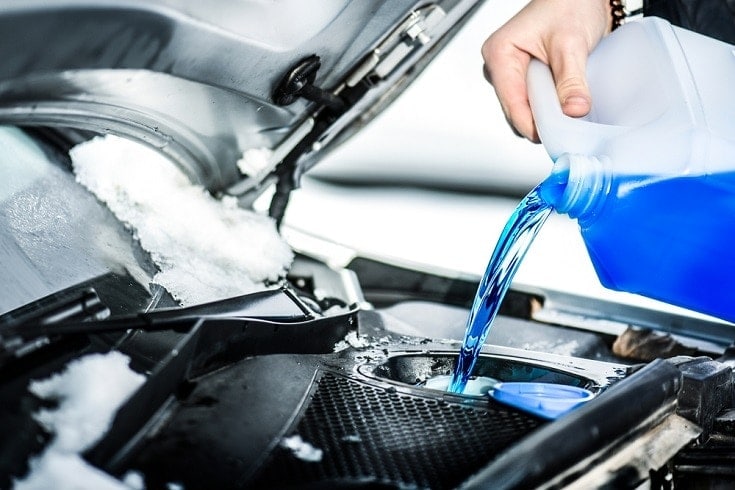
Ethylene glycol is a common ingredient in automotive antifreeze products. Ethylene glycol is sweet tasting and if antifreeze is spilled on a garage floor or driveway, a cat may lick it. Accidental ingestion of even a small amount of ethylene glycol may be fatal.
12. Acetaminophen
Acetaminophen is a common human medication used to control pain and fever. This medication is highly toxic to cats as cats lack the enzyme glucuronyl transferase, which is required for metabolism of paracetamol. Acetaminophen can cause a decrease in the red blood cell’s ability to carry oxygen to the cells of the body. Liver damage may also occur. Poisoning usually happens when an owner tries to treat their cat’s pain at home by administering acetaminophen. Acetaminophen poisoning may be fatal.
What Symptoms Will a Cat Show When It Has Been Poisoned?
The symptoms depend on the type of poison involved and the body system affected. Some poisons act on one body system while others affect multiple body systems and may produce a combination of symptoms. A cat that has been poisoned may show some of the following symptoms:
- Gastrointestinal symptoms such as lack of appetite, hypersalivation, nausea, diarrhea, and vomiting
- Neurological symptoms including tremors, incoordination, tremors, seizures, and coma
- Cardiovascular symptoms such as abnormal heart rhythms, an elevated heart rate, or an abnormally slow heart rate
- Symptoms related to kidney failure such as dehydration, increased thirst and urination, lack of appetite, and nausea
- Symptoms related to liver failure such as lack of appetite, jaundice, vomiting, and diarrhea
- Irritation and chemical burns of the skin and mucous membranes of the mouth and throat
- Bleeding, bruising, and anemia
If you notice any of the above mentioned signs, or if you suspect that your cat has been poisoned, it’s important to get your cat examined by a veterinarian as soon as possible.
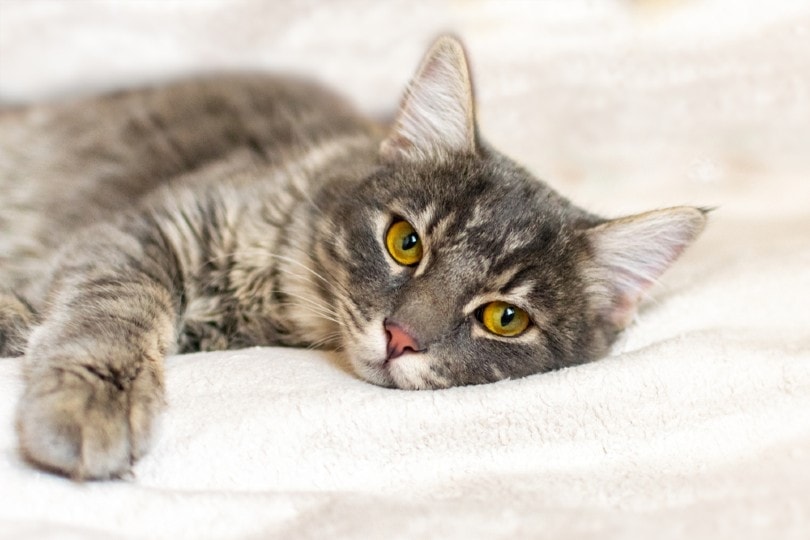
What Is the Treatment for Poisoning?
The treatment for poisoning is specific to the poison involved as well as the symptoms that the animal is showing. In cases where poisoning is suspected but the exact toxin is not identified, treatment is based on the symptoms that the animal is showing. Laboratory tests such as blood work and urinalysis will help guide treatment. Affected animals will often need supportive care until the poison can be metabolized and eliminated from their bodies. Supportive care may include intravenous fluids and medication to control seizures, maintain breathing, and control pain.
Some poisons, such as antifreeze and acetaminophen, have specific antidotes. Unfortunately, relatively few antidotes are available considering the number of common items that may be poisonous to cats.
If the poison was ingested between 30 to 60 minutes prior to the cat being seen, the veterinarian may decide to induce vomiting to empty the stomach and prevent further absorption of the poison. However, vomiting is not recommended if the poison could damage the esophagus, throat, and mouth on its way up. Vomiting is also contraindicated in cats that are not fully conscious as they may inhale the poison into their lungs due to the swallowing reflex being absent. In unconscious animals, the stomach may be flushed with a stomach tube. If the poison is known to bind to charcoal, activated charcoal will be administered.
If the cat has been exposed to a topical contaminant such as essential oils or spot-on tick and flea medication for dogs, the cat will be bathed with soap and water to prevent further absorption of the toxin.
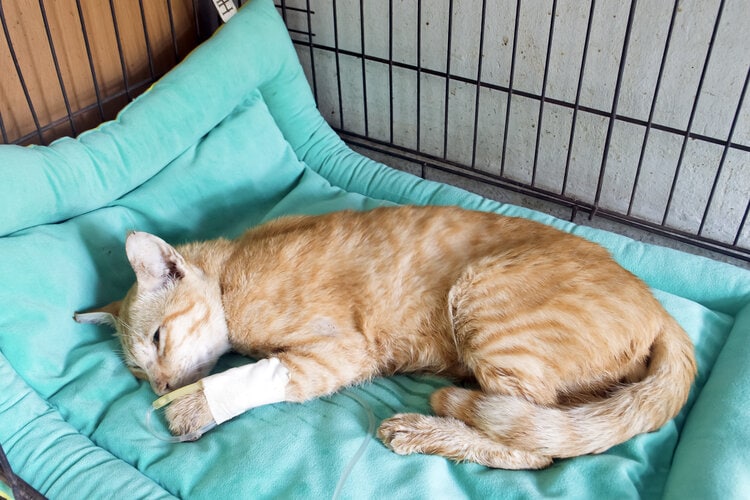
 What Is the Prognosis for a Cat That Has Been Poisoned?
What Is the Prognosis for a Cat That Has Been Poisoned?
The prognosis depends on the type and the amount of poison that the cat has been exposed to, as well as the amount of time that has passed before the animal receives treatment. In general, the sooner the cat receives treatment, the better the prognosis.
Featured Image Credit: Germanova Antonina, Shutterstock

